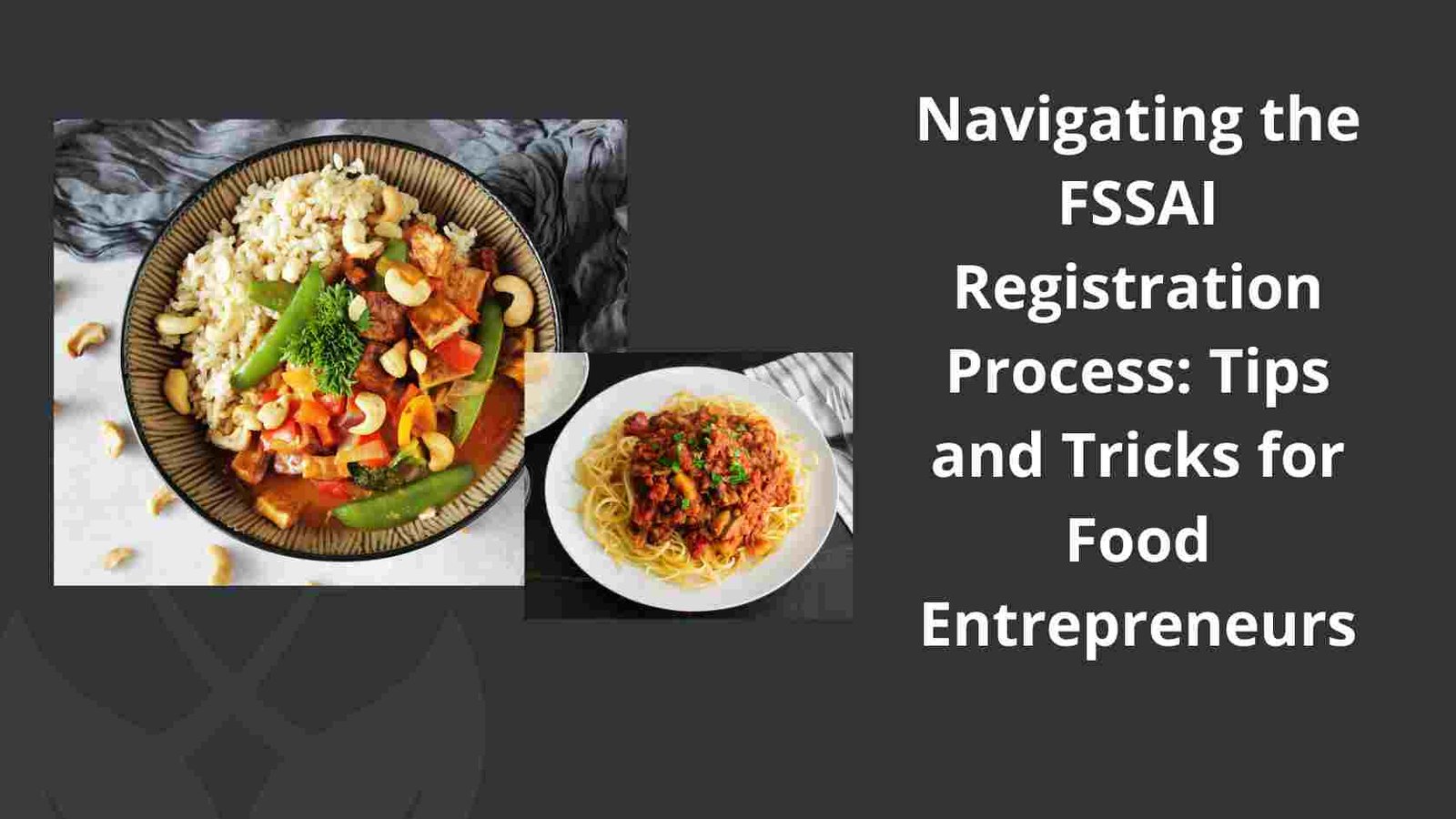Starting a food business can be an exciting venture, but navigating the regulatory requirements, especially concerning food safety, can be daunting. In India, the Food Safety and Standards Authority of India (FSSAI) regulates the food industry to ensure the safety and quality of food products available in the market. FSSAI Registration is mandatory for all food businesses, including manufacturers, processors, packers, and distributors. While the registration process may seem complex, with the right approach and knowledge, food entrepreneurs can successfully navigate it. Here are some tips and tricks to help you through the FSSAI registration process:
1. Understand the Requirements:
Before diving into the registration process, it’s crucial to understand the specific requirements laid out by FSSAI for your type of food business. Whether you’re a small-scale manufacturer or a large-scale distributor, familiarize yourself with the applicable regulations to ensure compliance from the outset.
2. Prepare Documentation:
Gather all the necessary documents required for FSSAI registration, such as identity proof, address proof, business incorporation documents, food safety management plan, and product details. Having these documents prepared and organized will streamline the registration process and prevent unnecessary delays.
3. Choose the Right Category:
FSSAI offers different categories of registration based on the scale and nature of the food business. Evaluate your business operations carefully and choose the appropriate category to avoid overburdening yourself with unnecessary regulatory requirements or facing penalties for non-compliance.
4. Seek Professional Assistance:
If you find the registration process overwhelming or confusing, consider seeking professional assistance from consultants or agencies specializing in FSSAI compliance. They can provide valuable guidance, ensure accurate documentation, and expedite the registration process, saving you time and effort.
5. Maintain Compliance:
FSSAI registration is not a one-time process; it requires ongoing compliance with food safety standards and regulations. Stay updated with any changes in regulations, conduct regular inspections of your premises, implement food safety management systems, and keep detailed records of your operations to ensure continued compliance.
6. Utilize Online Resources:
Take advantage of the online resources provided by FSSAI to simplify the registration process. FSSAI’s official website offers comprehensive guides, FAQs, and online application portals, making it easier for food entrepreneurs to understand the requirements and complete the registration process from the comfort of their own homes or offices.
7. Pay Attention to Labeling Requirements:
As part of the registration process, you’ll need to ensure that your product labels comply with FSSAI’s labeling requirements. Pay close attention to details such as ingredients list, nutritional information, allergen declarations, and packaging specifications. Non-compliance with labeling regulations can lead to rejection of your registration application or even penalties down the line.
8. Plan for Inspections:
Be prepared for inspections by FSSAI officials as part of the registration process. Ensure that your premises, equipment, and processes meet the required hygiene and safety standards. Conduct regular self-audits to identify and address any potential compliance issues before the official inspection, demonstrating your commitment to food safety.
9. Stay Informed About Renewal Requirements:
FSSAI registration is typically valid for one to five years, depending on the category and type of registration. Stay informed about the renewal requirements and timelines to avoid lapses in registration. Plan ahead and initiate the renewal process well in advance to prevent any disruptions to your business operations.
Note: You can also read FSSAI license Renewal in India
10. Network with Peers:
Connect with other food entrepreneurs, industry associations, and forums to share experiences and insights about the FSSAI registration process. Learning from the experiences of others can provide valuable tips and best practices to streamline your own registration journey and ensure compliance with regulations.
Conclusion:
Navigating the FSSAI registration process may seem daunting at first, but with careful planning, attention to detail, and proactive measures, food entrepreneurs can successfully register their businesses and operate in compliance with food safety standards. By utilizing online resources, paying attention to labeling requirements, planning for inspections, staying informed about renewal requirements, and networking with peers, you can navigate the registration process more efficiently and set your food business up for success in the competitive market landscape. Remember, FSSAI registration is not just a legal requirement but also a commitment to ensuring the safety and quality of food products for consumers, which ultimately contributes to the reputation and growth of your business.
